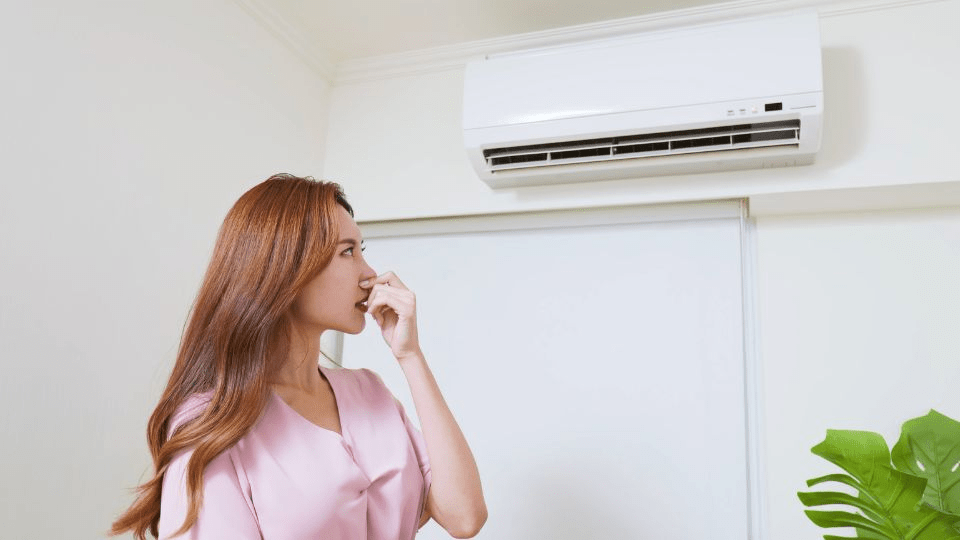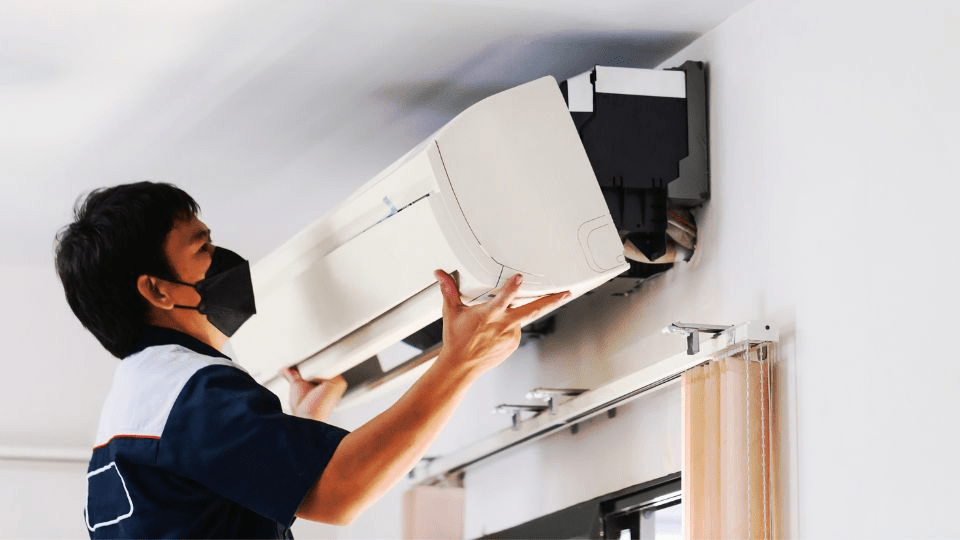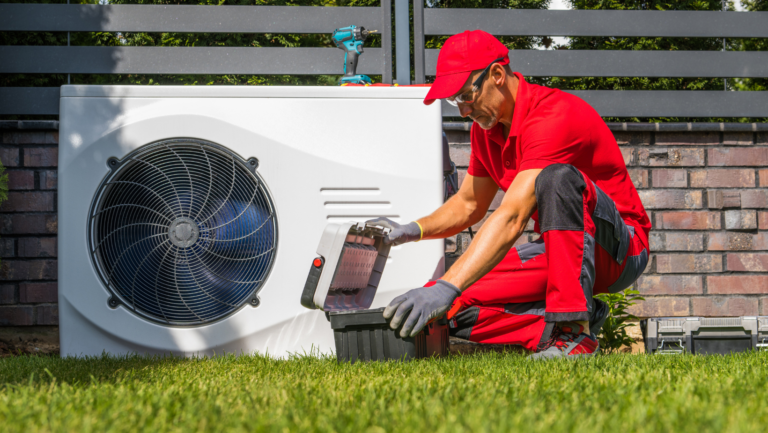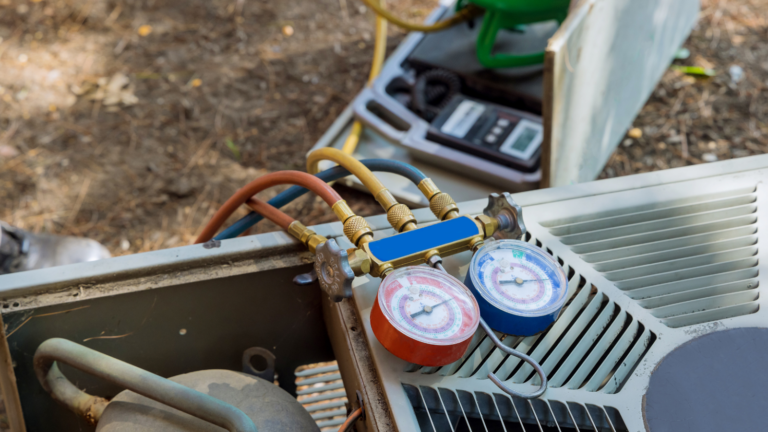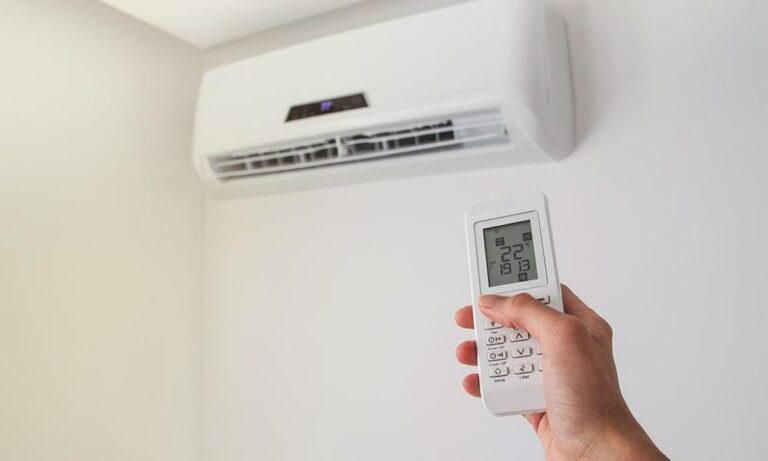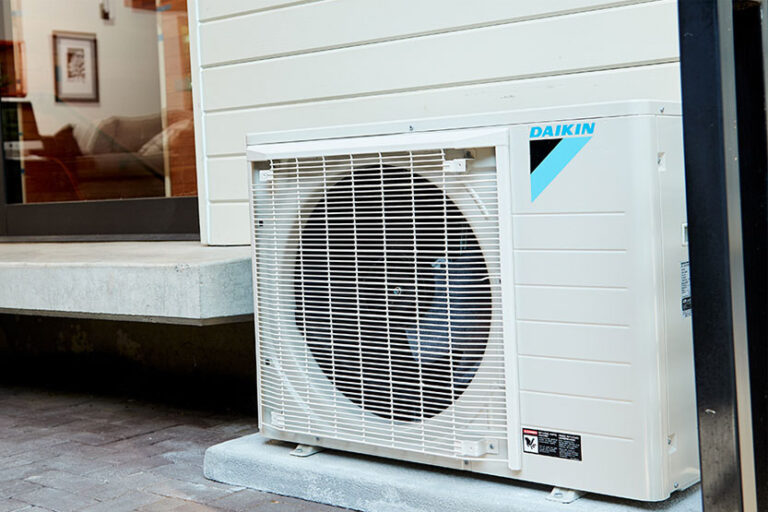Unveiling the Mysteries: Why Does My Air Conditioner Smell?
Air conditioners aren’t just about keeping us cool; they’re pivotal in managing indoor climate and improving air quality. Typically, an air conditioning unit works by drawing in warm air from your room, cooling it through a series of processes involving refrigerants, and then circulating the freshly cooled air back into the space. This cycle is not only essential for comfort but also for maintaining the integrity of your indoor environment.
Why does my air conditioner smell? When your air conditioner emits strange odors, it’s more than just an inconvenience; it’s a potential red flag indicating underlying issues. Identifying and resolving these odors is needed because they can affect more than just the air quality. Depending on the source, these smells could signify mold growth, electrical problems, or even a buildup of harmful chemicals, all of which could pose health risks to residents. Addressing these odors promptly helps ensure the air you breathe is clean and safe, enhancing your comfort and health.
Understanding Common Types of Odors
Numerous factors contribute to why your air conditioner smells bad. To effectively fix the root causes of a problem, it is important to gain an understanding of them. Moldy or musty odors are common and often indicate mold or mildew buildup, which is especially problematic in units with excess moisture or poor drainage. While chemical or burning smells could signal overheating components or electrical faults, requiring immediate attention to prevent hazards. Less commonly, the smell of rotten eggs may indicate the presence of a deceased animal within the system or a nearby gas leak, both requiring urgent inspection.
Sour or stale smells often arise from infrequent use of the AC, leading to odors from stagnant water in drain pans or old filters. Sweaty sock odors might seem humorous but are no laughing matter, typically resulting from standing water that hasn’t properly drained, allowing bacteria and mold to flourish. Lastly, sweet or foul odors can be a sign of a chemical leak, such as refrigerant, which undermines your unit’s efficiency and could pose allergic reactions.
Causes of Air Conditioner Odors
Understanding how to prevent odors from your air conditioning system can help maintain a healthy living environment. But before that, let us look at the causes of AC odors:
Accumulation of Moisture: The most common culprit behind bad AC smells is moisture accumulation, which can foster mold and mildew growth.
Presence of Mold or Mildew: These fungi thrive in moist environments and can quickly colonize HVAC systems that aren’t properly maintained.
Clogged Drain Lines: These prevent moisture from draining effectively, leading to stagnant water and associated odors.
Dirty Air Filters: Air filters can collect dust and other contaminants, which can start to emit odors if not regularly replaced.
Decomposing Organic Matter: Leaves, twigs, and even small animals can enter your AC system, decompose, and cause foul odors.
Electrical Issues: Wiring malfunctions and overheated components can produce a sharp, burning smell that signals potential fire hazards.
Chemical Contaminants: Leaks in the refrigerant lines or the use of certain cleaning chemicals can result in strong, unpleasant odors.
Impact of Air Conditioner Odors on Health and Comfort
Air conditioner odors can significantly affect health and comfort within your home. Pungent smells from AC units are often linked to respiratory issues and can cause asthma and other breathing difficulties. These odors can also act as triggers for allergies, making indoor environments uncomfortable or even harmful for those with sensitivities.
Moreover, unpleasant smells compromise indoor air quality, leading to discomfort and disrupting daily activities. This deterioration in living conditions underscores the importance of addressing these odors swiftly to maintain a healthy, comfortable home environment.
Identifying and Locating the Source of Odors
To effectively eliminate bad air conditioner smells, pinpointing their source is crucial. Starting with a visual inspection of the unit can reveal common problems like mold growth or clogged filters. Smell tests can further help identify the nature of the odor—whether it’s musty, indicative of mold, or sharp, suggesting electrical issues.
For odors that are not easily traceable through simple inspections, professional AC inspection services from a reputable heating and cooling company are invaluable. These experts use advanced diagnostic tools to uncover hidden problems, ensuring a thorough resolution that restores freshness and safety to your indoor air.
Prevention Strategies for Air Conditioner Odors
Maintaining a fresh and healthy indoor environment starts with proactive measures. Key among these is regular maintenance and cleaning of your AC unit, which helps prevent the accumulation of dust, mold, and debris that can cause odors. Enhancing ventilation and air circulation also helps by replacing stale indoor air with fresh outdoor air and preventing damp conditions conducive to mold growth.
Controlling humidity is also essential; high humidity can promote mold and mildew. Utilizing dehumidifiers or adjusting your AC’s humidity settings can help keep indoor humidity levels in check. Implementing air purifiers and high-quality filters can further improve air quality by trapping airborne contaminants before they become a problem.
Lastly, scheduling regular inspections and tune-ups by an HVAC technician can catch and resolve potential issues early, from refrigerant leaks to clogged drainage lines, ensuring efficient operation and an odor-free environment.
DIY Solutions for Odor Removal
If your air conditioner smells terrible, several DIY solutions can help clear it up while waiting for professional assistance. Begin by cleaning or replacing the air filters, as accumulated dirt and debris can trap odors. Regularly flushing the drain lines with a water and vinegar solution can prevent mold and a musty smell by keeping these areas free of stagnant water and debris.
Tackling mold and mildew directly is also important. Use a non-toxic cleaner suitable for air conditioners to wipe down accessible parts where mold tends to accumulate. Additionally, ensure that organic debris like leaves and twigs is cleared from around the outdoor unit to prevent decay and associated smells.
Refreshing your air ducts and vents can also be effective. Vacuum accessible ducts gently and use safe duct cleaning sprays to eliminate any lingering odors. These simple steps can significantly enhance the freshness of your air conditioning system and maintain a healthier indoor environment.
Professional Remediation Techniques
When DIY methods are insufficient, professional remediation techniques become essential for thoroughly addressing persistent odors in your air conditioning system. Disinfecting the HVAC system is a critical step, involving professional-grade products that effectively eliminate bacteria, mold, and other pathogens. This is often accompanied by deep cleaning and sanitization services that target every component of the system, ensuring a comprehensive cleanup.
Repairing or replacing damaged components is also vital. Over time, parts like dirty filters, evaporator coils, or ductwork can wear out and contribute to odor issues. HVAC professionals can assess whether a simple repair will suffice or if a full replacement is necessary to restore the system’s efficiency and hygiene.
Safety Precautions When Dealing with Air Conditioner Odors
Using protective gear and equipment protects technicians from harmful chemicals and contaminants encountered during cleaning. Proper handling of cleaning agents is crucial to avoid adverse reactions that could worsen air quality or damage components.
Electrical safety measures must be strictly followed to prevent accidents while servicing parts that could be electrically charged. Ensuring adequate ventilation during remediation processes helps disperse any fumes or airborne contaminants, safeguarding both the repair team and home residents from potential health risks.
Summary of Key Points
Understanding the unpleasant odors your air conditioner might emit and recognizing their causes are critical steps in maintaining a healthy indoor environment. Whether dealing with moldy, musty smells or chemical and burning scents, each type of odor indicates specific issues that need addressing to keep your AC unit functioning efficiently and your air quality high.
Proactive odor management is crucial. Regularly cleaning and maintaining your air conditioning system prevents many odors from arising. Strategies such as controlling humidity, ensuring adequate ventilation, and using high-quality air filters are essential for keeping your air fresh.
If you have an odor problem that needs to be addressed immediately, you can try some do-it-yourself solutions such as cleaning filters and flushing drain lines. However, if the problem persists, it may require professional remediation techniques such as deep cleaning or the installation of advanced odor-neutralizing technologies. In case you are unsure about the source of the odor or the issue is complex, it is advisable to consult with HVAC professionals to diagnose and resolve the problem effectively.
Say Goodbye to Unpleasant AC Odors: Discover Beam Airflow Today!

